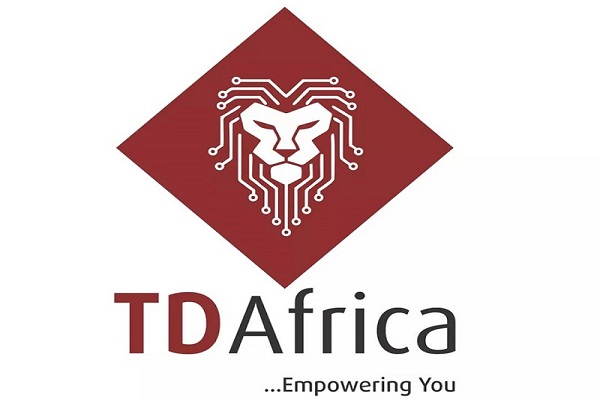/home/kenneth/web/nigeriacommunicationsweek.com.ng/public_html/wp-content/themes/zox-news/parts/post-single.php on line 153
">
Warning: Undefined array key 0 in /home/kenneth/web/nigeriacommunicationsweek.com.ng/public_html/wp-content/themes/zox-news/parts/post-single.php on line 153
Warning: Attempt to read property "cat_name" on null in /home/kenneth/web/nigeriacommunicationsweek.com.ng/public_html/wp-content/themes/zox-news/parts/post-single.php on line 153
Cisco Re-defines Teams Connectivity with New Enterprise Solution
Cisco on Monday announced a new video and collaboration solutions designed to put high-quality video at the fingertips of everyone in the organization—in organizations of all sizes.
The systems will allow people to effectively share video and content in rooms of any size depending upon their needs as well as the setup of the room.
These fully integrated systems combine a sleek, award-winning design with a simple and intuitive user experience.
Great experiences for every conference room, as Cisco described the enterprise solution.
In its second generation, the Cisco TelePresence® MX200 is optimal for smaller rooms, is value-priced to scale, is incredibly easy to install, and offers premium HD resolution out of the box.
The Cisco TelePresence MX700 and Cisco TelePresence MX800 represent the performance line and are ideal for medium- to large-sized rooms.
These integrated systems come equipped with premium HD resolution and support H.265, which will give users incredible quality at half the regularly-needed bandwidth.
Cisco added that there are no compromises between price and performance hence costing less than the price of a PC, The Cisco TelePresence SX10 Quick Set builds upon elements many companies already have in smaller meeting spaces—flat panel displays—to create incredible video meeting spaces.
Sure to be popular with SMBs, this system turns any standard flat panel display into an HD video collaboration system in 10 minutes or less. By making such a high-quality experience available at such an attractive price point, Cisco aims to make video the de facto collaboration tool for every conference room.
On video call via webcam, Cisco announced two new offerings in this category, both of which work with many of the solutions.
The Precision 60 offers the industry’s best image quality (1080p60), is highly adaptable to varying light conditions, and has a large zoom range, ensuring that the entire view is captured.
The SpeakerTrack 60 gives everyone the best seat at the table; based on the Precision 60, it is a unique dual camera system that intelligently finds the active speaker in larger meeting rooms and quickly zooms in to show his or her image.
Also, The Cisco TelePresence SX80 is an ideal solution for integrators looking to equip large, unique spaces with video.
Mr. Dare Ogunlade, general manager Cisco, Nigeria, Ghana, Liberia and Sierra-Leone said “Previous attempts to deliver collaboration have been incremental and good. But the cold, hard truth is that today’s collaboration tools are forcing users to do today’s jobs with yesterday’s technology. It is time for a change. The industry is ready for a great leap forward, and Cisco is making that leap. These new products represent the first phase of a multi-phase rollout in how Cisco is reimagining collaboration and setting the foundation for a revolution in the industry; stay tuned for more.”

Warning: Undefined array key 0 in /home/kenneth/web/nigeriacommunicationsweek.com.ng/public_html/wp-content/themes/zox-news/parts/post-single.php on line 493
Warning: Attempt to read property "cat_ID" on null in /home/kenneth/web/nigeriacommunicationsweek.com.ng/public_html/wp-content/themes/zox-news/parts/post-single.php on line 493
E-Business
Kaspersky, SMEDAN to Support SMEs in Nigeria with Cybersecurity Knowledge

Kaspersky, a global cybersecurity company, and the Small and Medium Enterprises Development Agency of Nigeria (SMEDAN) have signed a memorandum of understanding (MoU) to assist small and medium businesses in the country to become more cyber-aware and less vulnerable to developing cyber threats.

The MoU reflects a shared view that SMEs, being the backbone of economy, require strong cybersecurity measures. Kaspersky and SMEDAN will work together on information sharing, training programmes, and other practical steps to raise awareness of digital threats and cybersecurity measures.
“Small and medium business owners are juggling a dozen things – accounting, promotion, legal issues. They are not cybersecurity experts. But they are being targeted by cybercriminals through malware, phishing, and online schemes using social engineering tactics that make them look realistic.
“Our aim is to provide these organisations with some best practice tools and inform about measures that will help them stay safer online,” says Chris Norton, General Manager for Sub-Saharan Africa at Kaspersky.
The cooperation will feed into SMEDAN’s wider SME development efforts, with Kaspersky contributing cybersecurity knowledge and joining forces on awareness campaigns. The idea is to bring cybersecurity-focused guidance into existing business support channels, and to do it in a way that actually makes sense to entrepreneurs who may not have technical teams behind them.
Charles Odii, DG/CEO of SMEDAN, comments: “Since the COVID-19 pandemic, digital adoption among business owners has accelerated significantly. Many now operate WhatsApp shops, use online banking, and send invoices via email, which has increased their exposure to cyber risks.
Together with Kaspersky, we intend to strengthen cybersecurity awareness and practices across Nigeria, helping SMEs protect their businesses as they embrace the digital economy.”
SMEDAN has long been a government agency that has consistently shown up for small business owners in Nigeria. Its work cuts across industries, regions, and stages of growth from traders and artisans to early-stage tech startups trying to get formalised. This partnership gives it another tool to help those businesses operate more securely in a digital world. For Kaspersky, the collaboration is part of a wider push across the continent to support under-resourced sectors that are quietly being targeted online.
General News
NGF Launches Digital Platform to Bridge $100bn Infrastructure Gap

The Nigeria Governors’ Forum (NGF) has launched a digital platform to attract local and international investors to Nigeria’s sub-national infrastructure projects and close the country’s estimated $100 billion annual financing gap.

Unveiled in Abuja, Investopedia will serve as a transparent “one-stop shop” for investment opportunities across Nigeria’s 36 states, said the forum, offering detailed project information and clear entry points for prospective investors.
NGF chairman and Kwara State Governor, Abdulrahman Abdulrazaq, described the initiative as a “strategic tool to unlock Nigeria’s full potential by mobilising global and African capital for critical infrastructure”.
He stressed that the platform should be seen as more than an investment catalogue, but a gateway that combines opportunities with guidance and institutional oversight.
Investopedia is backed by partnerships with the African Export-Import Bank (Afreximbank), the United Nations Development Programme (UNDP), and the Ministry of Finance Incorporated (MOFI).
NGF director-general, Abdulateef Shittu, hailed the launch as a “new dawn” for sub-national investment readiness, noting that Nigeria attracted only $1.87 billion in foreign direct investment in 2023, well below Africa’s average.
By curating a pipeline of bankable projects, he said the platform would boost investor confidence and expand Nigeria’s global visibility.
Shittu added that beyond financing, the platform would foster technical partnerships, capacity-building, and risk mitigation, laying the groundwork for sustainable economic growth.
“This is about more than funding, it is about actionable, bankable projects that will drive jobs, inclusive growth, and long-term prosperity,” he said.
Telecom
TD Africa Secures AI ISO Certifications

TD Africa, Sub-Saharan Africa’s leading technology distributor, has once again raised the bar for the continent’s digital transformation journey by attaining the ISO 42001 (Artificial Intelligence Management Systems) and ISO 27701 (Privacy Information Management Systems) certifications.

These globally recognized certifications, which set the highest benchmarks for responsible AI deployment and data privacy, position TD Africa as a pioneer in preparing Africa for an AI-powered future.
Speaking on the milestone, Mrs. Chioma Ekeh, CEO of TD Africa, stated: “These certifications are not just badges of compliance; they reflect our deep commitment to building Africa’s digital resilience with trust, governance, and accountability at the core. At TD Africa, we believe Africa must not remain a passive consumer of global innovation but must actively shape and co-create solutions that reflect our unique realities. From financial inclusion to agriculture, healthcare, and digital governance, AI presents limitless opportunities—our role is to ensure Africa is prepared to harness them responsibly.”
ISO 42001 provides the world’s first governance framework for the ethical and transparent deployment of artificial intelligence, ensuring solutions align with human values and global best practices. On the other hand, ISO 27701 guarantees that TD Africa manages personal data with unmatched integrity and security. This is an essential pillar in a time where data privacy is increasingly under threat.
For nearly three decades, TD Africa has anticipated and shaped the future of technology on the continent, not by chasing trends, but by building enduring structures. Beyond its certifications, the company has invested in world-class infrastructure, resilient distribution systems across 47 African countries, and a thriving technology ecosystem. Its TecHerdemy program has empowered over 400 women in technology, further cementing its position as a catalyst for inclusive digital growth.
With trusted partnerships with global technology leaders, TD Africa has consistently delivered on its promise to bridge global innovation with African realities. The attainment of these ISO certifications reinforces its ability to responsibly distribute and support advanced AI technologies across its vast network of resellers.
As the world prepares for the dawn of Artificial General Intelligence (AGI) with breakthroughs such as GPT-5, TD Africa is ensuring that Africa is not left behind. The certifications demonstrate the company’s readiness to give Africa not just access to innovation, but the muscle, discipline, and confidence to use it sustainably.
“This achievement is not just about TD Africa,” Mrs. Ekeh added. “It is a milestone for Africa. The global AI conversation cannot be left to Silicon Valley or Beijing alone. Lagos, Nairobi, Accra, Kigali, and Johannesburg must also have a strong voice. And TD Africa is proud to amplify that voice. We are no longer waiting for tomorrow to happen; we are preparing tomorrow, today.”
With this bold move, TD Africa has reaffirmed its legacy of leadership in technology distribution, while signaling a new era where Africa plays a decisive role in the global digital renaissance.

 Telecom3 days ago
Telecom3 days agoNCC Claims to Have Eliminated Unregistered SIMs from Telecoms Networks

 Telecom3 days ago
Telecom3 days agoAliyu Aboki Applauds Broadband Mapping as About Expanding Opportunity in Africa

 Telecom2 days ago
Telecom2 days agoFG Scraps 5 Percent Telecom Excise Duty Under New Tax Law

 E-Financial3 days ago
E-Financial3 days agoUBA Secures N5Bn BoI Fund to Boost Women Entrepreneurs, Others

 Telecom3 days ago
Telecom3 days agoMTN Group Restructures Executive Team, Appoints Toriola VP for Francophone Africa

 News3 days ago
News3 days agoTelcos See Biggest Growth Post-COVID – ALTON

 News3 days ago
News3 days agoNITDA, Bauchi State Partner on Digital Literacy and Skills Framework

 General News3 days ago
General News3 days agoVirtual Reality in Healthcare: Nigeria’s Untapped Opportunity for Training, Patient Care, and Medical Innovation













